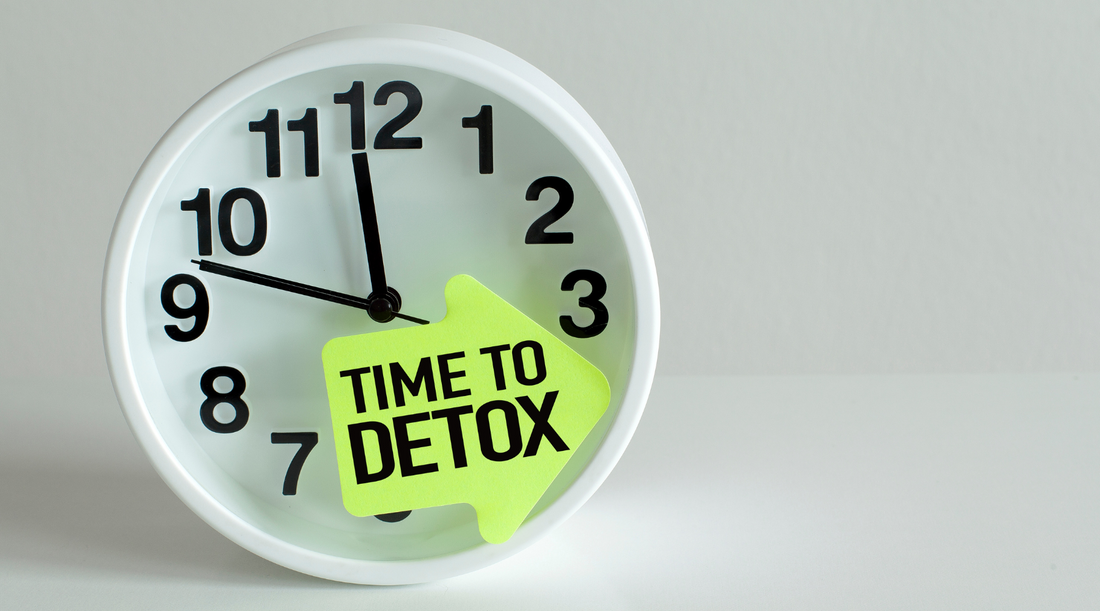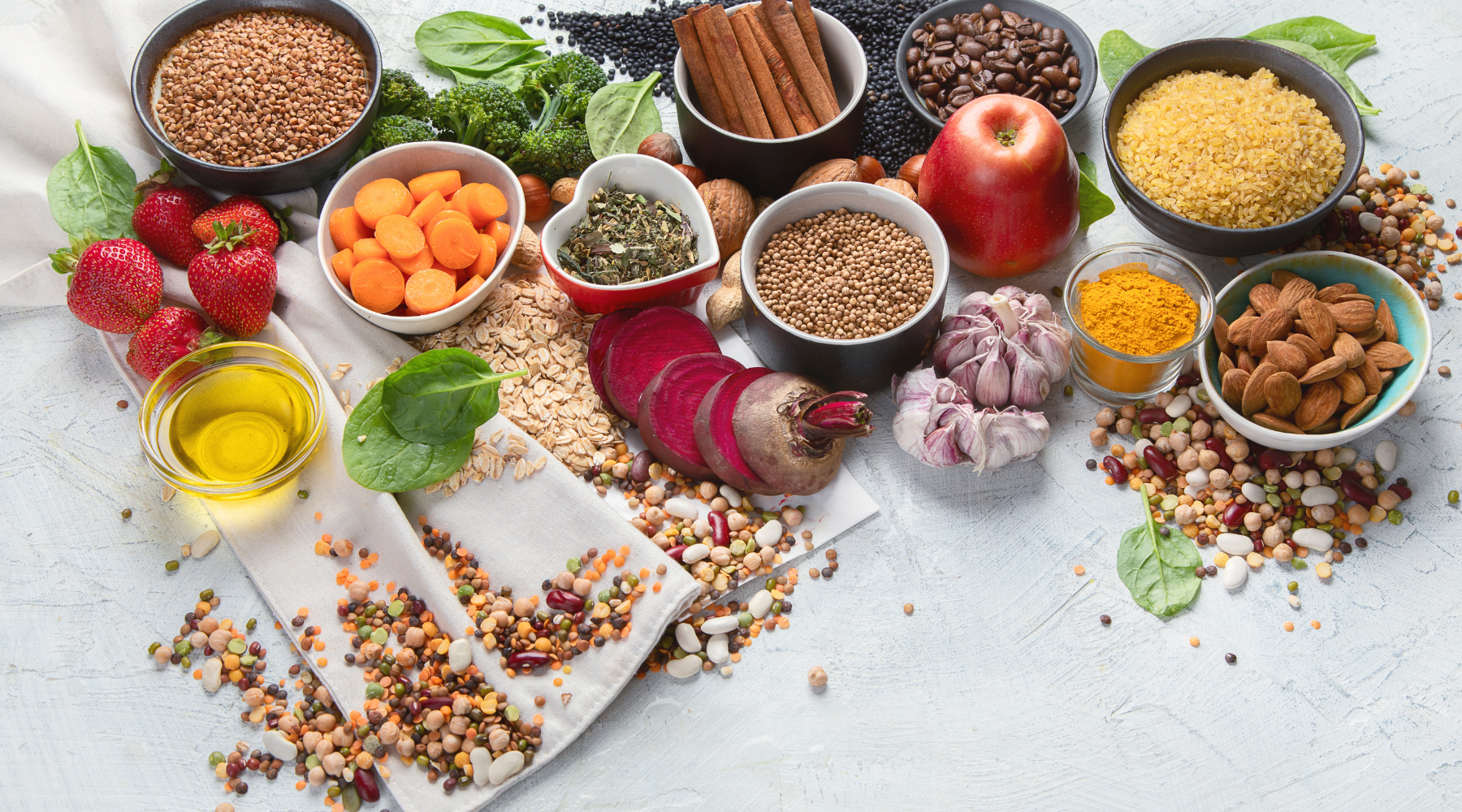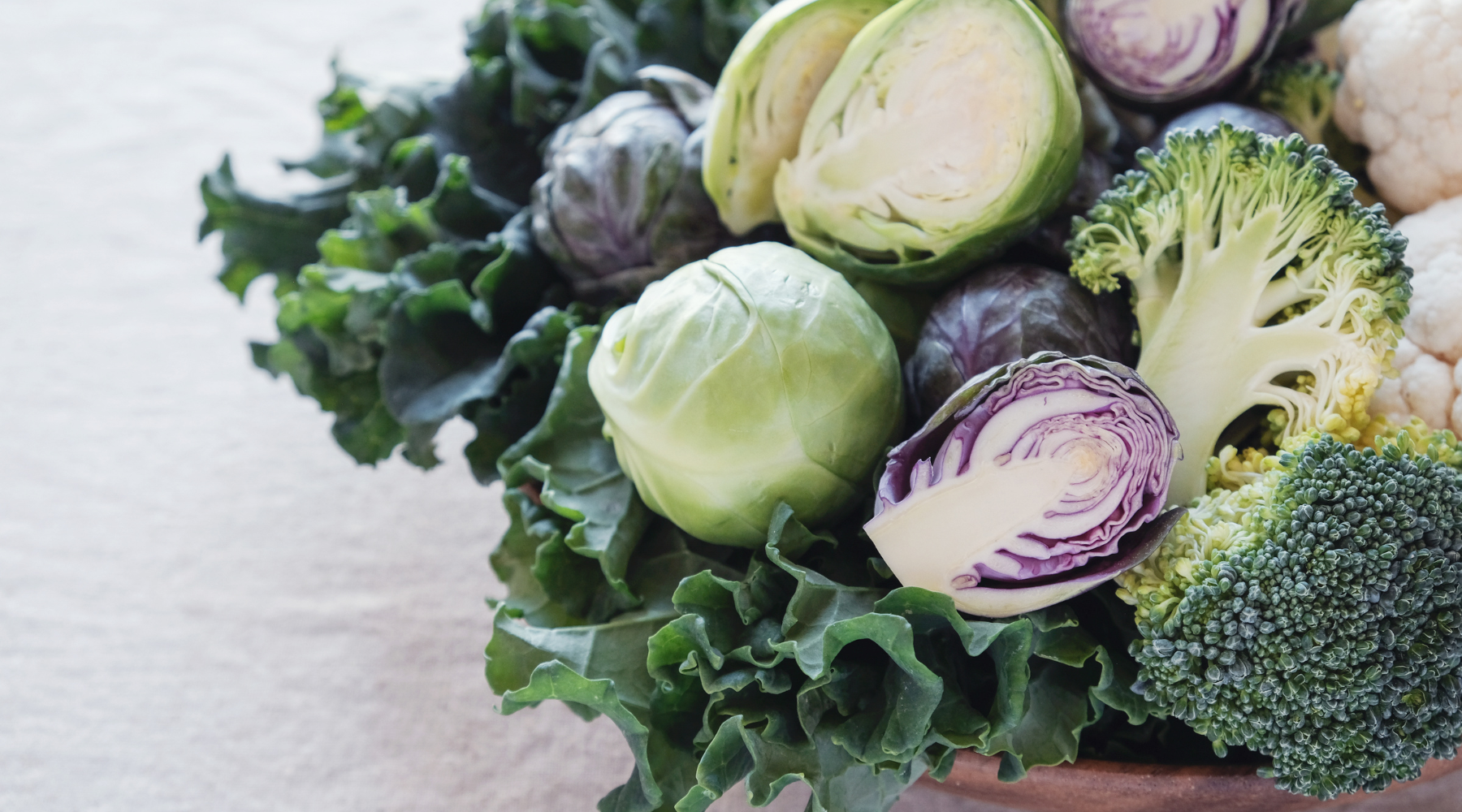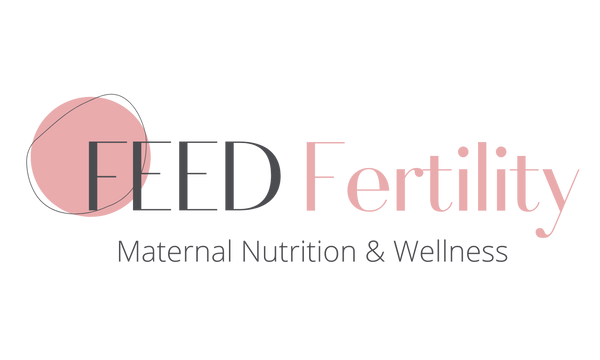
Gentle Fertility Detox: Optimizing Your Body for Conception
Spring is finally here! It’s time to open up the windows, dust off those sandals, and spend more time outdoors. It’s also the perfect time to do an annual (or semi-annual) cleanse. Cleansing the body periodically can be extremely beneficial for maintaining overall health, and it can be especially helpful for those who are trying to conceive. It can help to rid the body of environmental toxins and excess hormones that can hinder your reproductive system's optimal functioning.
I often recommend a Gentle Fertility Detox to my clients as the first foundational step to improve fertility outcomes and prepare the body for a healthy pregnancy. Like many health protocols, however, there is a good and not-so-good way to do things, and with fertility cleansing, method is key. Unlike restrictive cleanses that leave you feeling depleted, gentle detoxification focuses on supporting your body's natural ability to eliminate toxins and create a healthier environment for conception.
In this blog post we’ll cover the fundamentals principles of healthy detoxification, including how to detox the right way and common mistakes to avoid. First, let’s start with the basics.

What is Detoxification?
Detoxification is the body's natural process of removing harmful substances, including environmental toxins, metabolic waste products, and excess hormones. Our bodies are equipped with a sophisticated detoxification system that works around the clock. The liver plays a starring role in this process, acting as a natural filter to remove toxins and waste products from the bloodstream. Other key players include the kidneys, lungs, intestines, and lymphatic system, each contributing to the body's remarkable ability to cleanse itself. Here's a quick breakdown of how these organs work together:
- Liver: This powerhouse organ neutralizes toxins, breaks them down into harmless substances, and eliminates them through bile or urine
- Kidneys: These filtration experts remove waste products and excess fluids from the blood, sending them out as urine
- Lungs: We breathe in oxygen and breathe out carbon dioxide – a waste product of cellular respiration. The lungs play a crucial role in eliminating this toxin
- Intestines: The digestive system plays a vital role in detoxification by eliminating waste products through bowel movements
- Lymphatic System: This network of vessels transports fluids and waste products throughout the body, eventually delivering them to the bloodstream for elimination
You may be wondering why do we need to detox if our body already has us covered? Well, the problem is that these organs can tire when they are overworked. The water we drink, the air we breath, the food we eat and the products we put on our skin all include substances that require elimination. Due to the sheer volume of these things in our lives, our detox organs can tire, resulting in a buildup of toxins in our bodies. Through regular gentile detoxification, however, we can help eliminate these substances, while supporting our detox organs.

Detoxification For Fertility
Environmental toxins and excess hormones can have a negative impact on a our reproductive system in a number of ways. These toxins can:
- Disrupt hormonal balance: Estrogen dominance, a condition where estrogen levels are too high relative to progesterone, can hinder ovulation and implantation.
- Reduce egg quality: Toxins can damage eggs, impacting their viability for fertilization.
- Create an unhealthy uterine environment: Toxins can affect the lining of the uterus, making it less receptive to implantation.
By supporting our body's natural detoxification processes, we can create a more favorable environment for conception. Gentle detoxification does this in a number of ways, including:
- Improved Egg Quality: Toxins can damage eggs, impacting their viability for fertilization. By supporting detoxification, you may reduce oxidative stress and promote a healthier environment for egg development
- Hormonal Balance: Excess hormones like estrogen can disrupt ovulation and implantation. Detoxification can help regulate estrogen dominance and support healthy progesterone levels, creating a more balanced hormonal environment for conception
- Enhanced Uterine Lining: A healthy uterine lining is crucial for implantation and fetal development. Detoxification may contribute to a thicker and more receptive uterine lining by reducing inflammation and promoting optimal nutrient flow
- Reduced Inflammation: Chronic inflammation can negatively impact fertility. Detoxification can help reduce inflammation throughout the body, potentially creating a more favorable environment for conception
It's important to remember that detoxification is not a guaranteed path to pregnancy. However, by supporting your body's natural detoxification processes, you can create a foundation for optimal health and potentially improve your chances of conception.

Why “Gentle” Detoxification?
Many people associate detoxification with restrictive juice cleanses or fasting. These methods can be harsh on your body, leading to nutrient deficiencies, fatigue, and electrolyte imbalances.
Restrictive diets often involve eliminating entire food groups, often causing more harm than good. Eliminating essential food groups can deprive your body of vital nutrients causing deficiencies of nutrients your body needs for optimal functioning of your reproductive system. Moreover, rapid dietary changes can disrupt your gut microbiome, as well as muscle breakdown, impacting your metabolism and overall well-being.
Another common unhealthy practice is “juice cleansing”. While fresh-squeezed juices can be nutrient rich, it’s important to note that they are also high in sugar which can disrupt your insulin balance and ultimately affect other hormones, like those required for reproductive function.
Gentle detoxification, on the other hand, is a more sustainable and holistic approach to supporting the elimination organs. It provides all of the benefits of cleansing without putting added stress on the body.

Gentle Detoxification for Fertility
Gentle detoxification focuses on nourishing your body and supporting its natural ability to eliminate toxins. Prioritize whole, unprocessed foods like fruits, vegetables, whole grains, lean protein, and healthy fats. Introduce new healthy habits gradually to allow your body to adjust comfortably. Here are some key strategies you can incorporate into your routine:
Key Dietary Changes
- Whole, Unprocessed Foods: Prioritize organic fruits and vegetables, whole grains like brown rice and quinoa, lean protein sources like chicken, fish, and legumes, and healthy fats from nuts, seeds, and avocado. These foods provide essential nutrients that support your body's natural detoxification pathways.
- Cruciferous Vegetables: These powerhouses, including broccoli, cauliflower, and Brussels sprouts, are rich in glucosinolates, which can help activate detoxification enzymes in your liver
- Fiber-Rich Foods: Fiber helps eliminate toxins through the digestive system. Include plenty of fruits, vegetables, whole grains, and legumes in your diet to support healthy elimination
- Limit Inflammatory Foods: Processed foods, refined sugars, and unhealthy fats like saturated and trans fats can contribute to inflammation in the body. Reducing your intake of these foods can create a more favorable environment for fertility
- Hydration: Water is essential for flushing toxins from your body. Aim to drink plenty of water throughout the day, especially when increasing your fiber intake.
Supportive Supplements
- Milk Thistle: This herb has been traditionally used to support liver health. Studies suggest it may help protect the liver from damage and enhance its detoxification processes
- N-acetylcysteine (NAC): NAC is a precursor to glutathione, a powerful antioxidant that plays a vital role in detoxification
- B Vitamins: B vitamins are essential for various metabolic processes, including detoxification. Deficiencies in B vitamins can hinder your body's ability to eliminate toxins
- Omega-3 Fatty Acids: Omega-3s possess anti-inflammatory properties that can benefit overall health and potentially support detoxification
- Liquid Chlorophyll: Chlorophyll is used for detoxification by helping remove toxins such as heavy metals and other pollutants from the blood.
- Spirulina: Spirulina aids the body's detoxification pathways by binding to toxins, heavy metals, pesticides, and solvents.
Lifestyle Factors
- Sleep: During sleep, your body undergoes a natural detoxification process. Prioritize getting 7-8 hours of quality sleep each night to optimize detoxification and overall health
- Stress Management: Chronic stress can hinder detoxification by elevating cortisol levels. Relaxation techniques like yoga, meditation, or deep breathing can help manage stress and support your body's ability to eliminate toxins
- Exercise: Regular moderate exercise promotes circulation and lymphatic drainage, aiding in the elimination of toxins. Aim for at least 30 minutes of moderate-intensity exercise most days of the week
- Limit Toxin Exposure: While we can't completely avoid environmental toxins, there are ways to minimize exposure including choosing natural cleaning products and cosmetics, opting for organic produce whenever possible. For more tips on how to decrease your toxic load, read last week’s blog post: Endocrine Disruptors: The Hidden Threat to Your Fertility
Incorporating these practices into your daily routine can help you create a sustainable approach to detoxification that supports your overall health and fertility. Remember to listen to your body. Pay attention to how you feel and if you experience any negative side effects, consult a professional.
When done properly, gentle detoxification can be a powerful way to pave the road for a successful fertility journey. By embracing the process, celebrating positive changes, and staying consistent, you can empower your body for a successful conception and a joyful pregnancy journey.

Sources:
- Barton, S. E., Bechorin, S., & O'Connor, R. (2019). The potential benefits of preconception micronutrient supplementation in women: A review of the evidence. Maturitas, 129, 113-121. https://www.sciencedirect.com/science/article/pii/S0002916522006955
- Boyden, E. M., Zhao, J., & Mitchell, M. D. (2012). Silymarin/milk thistle: Effects on dyslipidemia and diabetes and cardiovascular outcomes. Pharmacological Research, 65(4), 523-530. https://pubmed.ncbi.nlm.nih.gov/29895491/
- Czelej, S., Krężołek-Szilder, K., & Słowińska, M. (2014). The role of B vitamins in one-carbon metabolism and their therapeutic potential in folate-dependent homocystinurias. Current Pharmaceutical Design, 20(15), 2520-2529. https://www.mdpi.com/journal/nutrients/special_issues/one_carbon_metabolism
- Clifton, P. M. (2020). Omega-3 fatty acids for the treatment of depression: Current evidence and future directions. Psychiatry (Edgmont), 11(1), 1-8. https://www.ncbi.nlm.nih.gov/pmc/articles/PMC6683166/
- LaGuardia, L., Shu XO, Roche EP (2010) Contaminants and reproductive health. Environ Health Perspect 118(2):160–168
- https://my.clevelandclinic.org/departments/functional-medicine/programs/functional-detox-program
- https://www.health.harvard.edu/staying-healthy/all-about-inflammation
- https://www.sleepfoundation.org/
- https://www.apa.org/
